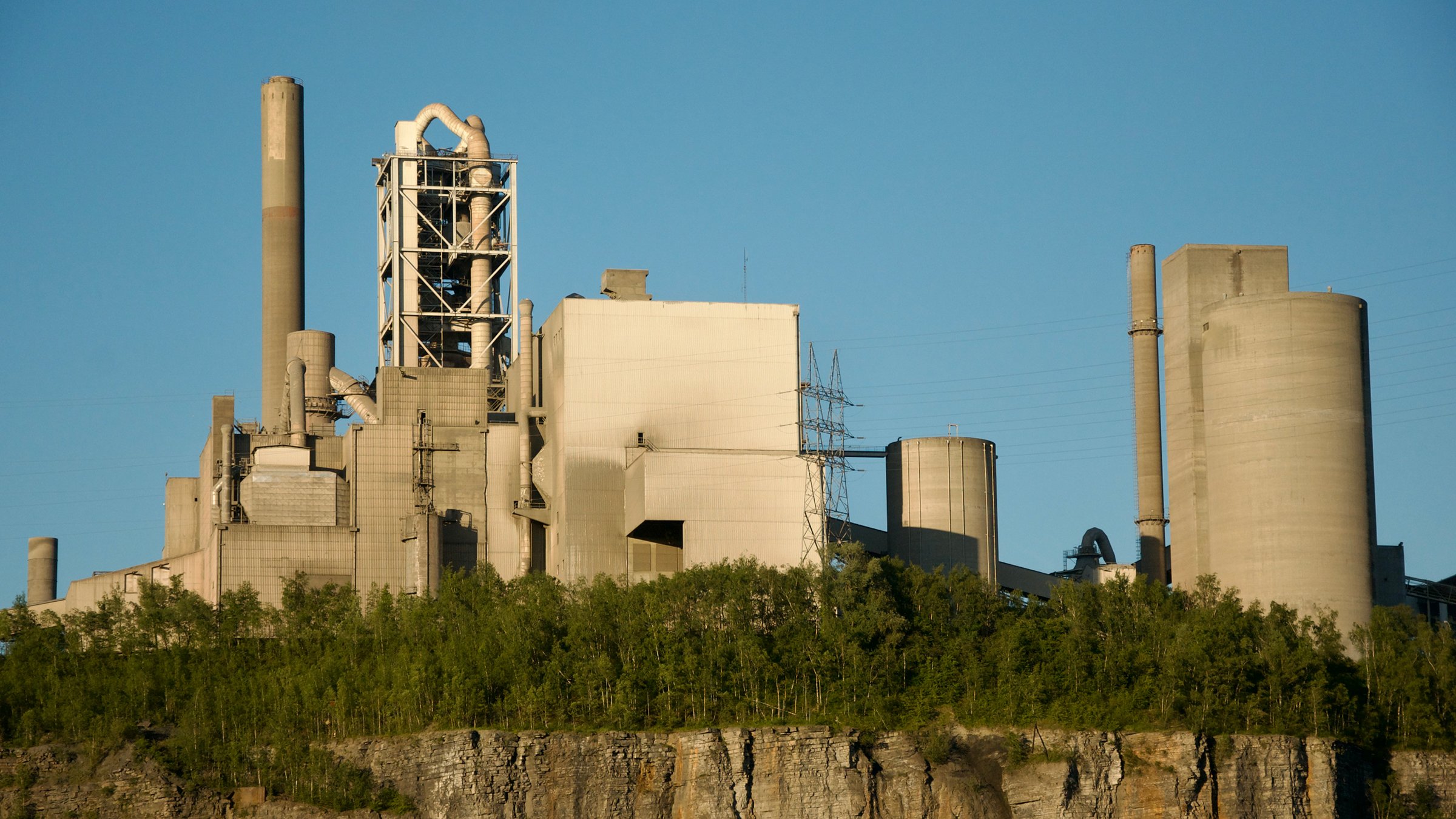Energy-intensive industries are feeling the pressure from all sides! Compounding much tougher international sustainability legislation and targets, recent sharp rises in energy prices are pushing companies to examine their products and processes more closely, too, to ensure that they are using energy in the most efficient way possible.
Simple processes may just require basic analysis and fine tuning, but plants that produce multiple products and rely on a wide range of high-tolerance parameters are far more difficult to tune, and more often than not will see immense and immediate benefits from digital solutions.
Sustainability planning
Compagnie des Ciments Belges SA (CCB), part of Cementir Holding group – a multinational building solutions company and global leader in white cement – is one such company that is examining its processes with the goal of becoming more sustainable. Indeed, it has formulated an ambitious roadmap to significantly reduce CO2 emissions by 2030.
The Group’s 10-years roadmap includes the replacement of fossil fuels and clinker, the development of a new low-carbon cement, and several investments in sustainable development, coupled with the digitalization of manufacturing, maintenance, inventory and spare-parts management processes in all its factories.
Digital insights
Digitalization is delivering benefits across the board in just about every industrial setting, thanks to the collection and exploitation of operational data, which is helping to deliver new and elevated levels of insights, resulting in efficiency improvements. And the cement industry is no exception.
CCB has already made some early commitments to its data-driven Industry 4.0 aspirations, firstly with the purchase of a new digital analyzer, which can measure the fineness of the cement formulation from its two cement mills. Before this, it used a series of cascade PIDs (proportional–integral–derivative) controllers acting on information supplied by lab samples taken every two hours. But constant quality checks and the resultant energy saving require constant measurement, and a two-hour window is more than enough for such a complex manufacturing process to creep out of tolerance.
According to Juliano de Goes Arantes, Digital Account Executive at Rockwell Automation: “CCB offers ten different types of cement of differing qualities and functional specifications. Making this cement is analogous making different breads; the different ingredients and ratios result in different end products. As a result, it is important to use the right ingredients in the right amounts to hit optimum product profile, otherwise there can functional or cost implications.”
Closing the loop
de Goes Arantes continues: “CCB had long realized that it needed to establish more accurate and more timely control over its processing and the digital analyzer was just the first step. When we were first contacted as part of its digitalization journey program, the analyzer was not installed but it was to be considered as part of the installed base. As a result, our solution would need to close the loop, i.e., take information from the analyzer in real time, fine tune the process parameters and raw material quantities and then feed the corrections back into the process. The end game being to help ensure consistent and optimum quality for the different cement types produced. Not only would this improve quality, but by only using energy-intensive steps for precisely defined amounts of time, it would also cut power consumption.”
Rockwell Automation’s products and capabilities were already known within the Cementir Group, with favorable references to back up CCB’s choice of supplier. Rockwell Automation was also able to bring its considerable cement and process domain experiences to the table in its deployment of its Pavilion8® model predictive control (MPC) solution. MPC offers an intelligence layer that sits on top of automation systems and continuously assesses current and predicted operational data. It then compares this data to desired results, and drives new control targets to reduce process variability, improve performance, and boost efficiency – all in real time.
Proof in the numbers
CCB is already seeing significant performance gains from tighter control of process steps, with specific energy consumption (SEC) down by more than 6% - compared to a target of 3%. Production rate has increased by nearly 8.5%, compared to a 3% target and availability is sitting at 97% - right on target. In a similar application in the USA, the Pavilion8 MPC increased throughput by 4.8% and 5.7% on two mills, increased finish-mill production by 5%, and reduced power consumption by 3.5 KWh ton of cement produced.
Gauthier Autrand, plant manager at CCB also stressed the advantages of this new system: “Since its commissioning, we have not had to call the Rockwell service line, as this system is working continuously, with performance as expected, although this is hard to determine due to the changes in process and products that are now part of our sustainability roadmap.”
de Goes Arantes further elaborates: “This is one of the most complex applications I have ever worked on, due to the sheer number of process variables and cement types. But sustainability is an important contemporary metric for any company, so it was essential to deliver the best possible solution. The MPC platform optimizes multiple parameters at the same time using specialist algorithms, where it constantly updates process conditions based on optimum outcomes.
“The technical complexity was compounded by the distance-working conditions enforced by the pandemic,” de Goes Arantes continues, “but we were able to deliver the all-important peace of mind and, of course, a solution that delivered what we said it would.
“We are anticipating new elements being added to the project and the plant as a whole,” he concludes, “all of which will thrive on the company’s new digital backbone. CCB has also told me that it thinks it can achieve even more, and I agree. I don’t think we have seen the full picture in terms of what these solutions will deliver.”
Allen-Bradley, expanding human possibility, Pavilion8 and Rockwell Automation are trademarks of Rockwell Automation, Inc.
Trademarks not belonging to Rockwell Automation are property of their respective companies.

